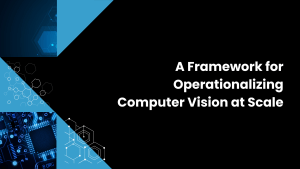Microsoft’s AI Tour held in London this past week featured Microsoft CEO Satya Nadella unveiling an ambitious roadmap for autonomous AI agents, marking a significant pivot in the company’s enterprise strategy. Nadella’s announcements reflect a carefully orchestrated approach to embedding AI deeply within organizational workflows, but the real story here goes beyond the individual product announcements.
Microsoft’s Three-Pillar Strategy for Autonomous AI Agents
Microsoft’s strategy centers on three interconnected solutions: Copilot as the human interface, Copilot Studio for customization, and Copilot Devices for edge computing. This trinity reveals a sophisticated understanding of enterprise AI adoption challenges. While competitors focus on singular aspects of AI implementation, Microsoft is building a comprehensive ecosystem that addresses computation, customization, and control.
The positioning of Copilot as the primary interface layer is particularly noteworthy. Rather than creating yet another standalone AI tool, Microsoft is essentially establishing an AI operating system for enterprises. This approach is smart, and I see the potential of this “AI OS” fundamentally reshaping how organizations interact with AI, making it more accessible while maintaining necessary governance controls.
Edge Computing: The Hidden Advantage
Perhaps the most underappreciated aspect of Microsoft’s announcement is its emphasis on edge computing through Copilot Devices. The introduction of Copilot+ PCs signals a significant shift from the cloud-centric AI paradigm that has dominated recent years. By combining CPU, GPU, and NPU capabilities at the edge, Microsoft is positioning itself to address growing concerns about data privacy and latency in AI applications.
This hybrid approach to AI computing could prove to be a crucial differentiator. While competitors continue to push cloud-based solutions, Microsoft’s distributed fabric architecture suggests a more nuanced understanding of enterprise needs, particularly in sectors where data sovereignty and processing speed are critical. This is especially timely as we are beginning to see more of an interest in/focus on data sovereignty in regulated environments, which is likely to increase at a rapid pace.
Autonomous AI Agents and Enterprise Integration: Beyond CRM
Microsoft’s announcement of ten pre-built autonomous agents for Dynamics 365 demonstrates Microsoft’s practical approach to enterprise AI adoption. These autonomous agents are designed to support supply chain, finance, sales, and service teams. Examples include customer-service focused Customer Intent and Customer Knowledge Management Agents, which are designed to work hand-in-hand. The Customer Intent Agent, for example, learns how to solve a problem and the Knowledge Management Agent picks up the insight gleaned from the Intent Agent and gets it into the corporate knowledge base from which others can quickly learn and benefit. The Supplier Comms Agent should be a big hit for procurement and supply chain teams, autonomously tracking supplier orders, detecting delay issues, and taking action as needed to ensure the resilience of the organization’s supply chain.
Copilot Studio, an all-in-one platform for building agents, features AI models, thousands of prebuilt connectors, a low-code design interface, and a managed SaaS infrastructure. Users can easily create, manage, and connect agents to Coilot. These capabilities are expected to be in public preview in time for Microsoft Ignite 2024, being held in Chicago in a few weeks.
This is where I see the real value proposition in Microsoft’s Autonomous AI agents: it lies in the potential for cross-system integration. Unlike Salesforce’s Agentforce, which primarily focuses on CRM workflows, Microsoft’s autonomous agents can potentially bridge traditionally siloed systems like CRM and ERP, which I see as a key differentiator.
This integration capability could be particularly transformative in areas like supply chain management, which I pointed out as an example above, where the Agent is accessing and utilizing real-time data across multiple systems, continuously tracking and taking action as needed to protect against supply chain delays
In addition, the ability to create custom agents through Copilot Studio is very attractive, as further extending this potential, allowing organizations to build specialized AI solutions that align with their unique processes.
Challenges and Opportunities
Despite the comprehensive nature of Microsoft’s vision, several challenges remain. The success of this initiative will largely depend on the company’s ability to deliver on the promise of seamless integration across its vast ecosystem. The complexity of enterprise systems and the need for careful governance of autonomous AI actions could prove to be significant hurdles.
We already see challenges for Microsoft Copilot, which uses encryption and data anonymization techniques to protect data, but which also comes with its own security challenges. These include the possibility of bias, data leakage, unauthorized access, regulatory, and the many compliance challenges across various geos companies face as it relates to data storage, governance, and handling regulations.
Additionally, the market response to Microsoft’s approach versus Salesforce’s more focused strategy will be telling. While Microsoft’s broader ecosystem and deep entrenchment in the enterprise could provide long-term advantages, Salesforce’s specialized CRM expertise might deliver more immediate value in specific use cases.
That said, it largely goes without saying that both Microsoft and Salesforce have captured significant market share across the enterprise landscape so there will be no shortage of customers exposed to and experimenting with these autonomous agentic offerings. It will be interesting to watch this play out between the two.
Looking Ahead at Microsoft’s Autonomous Agent Strategy
Microsoft’s autonomous agent strategy represents a significant bet on the future of enterprise AI. By creating a comprehensive framework for AI integration, which I’m a big fan of, the company is positioning itself at the forefront of what could be a fundamental shift in how organizations operate. The success of this initiative could redefine enterprise software architecture and set new standards for AI integration in business processes.
The real test will be in the implementation details and the market’s readiness to embrace such a comprehensive transformation of their organizations’ digital infrastructure. As organizations begin to deploy these solutions, the true value of Microsoft’s vision for autonomous agents will become clearer.
See more of my coverage here:
AI Literacy: The New Competitive Advantage for Organizations of All Sizes
Talking Microsoft Copilot for Security with Cyber Expert Rob May
Microsoft Copilot for Microsoft 365: What’s Ahead for Law Firms



